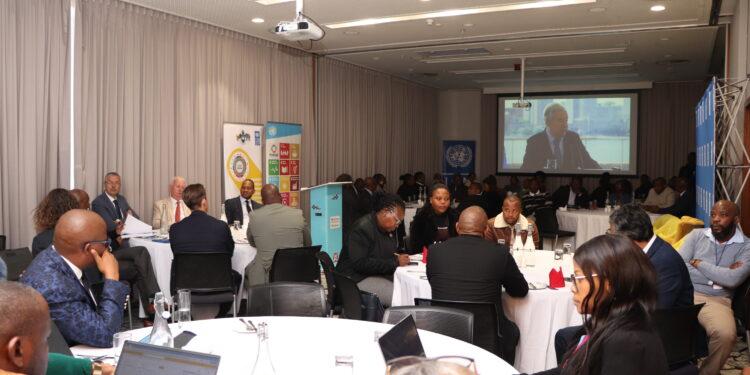Eswatini charts path toward just energy transition following UN climate call

In response to a global climate call by United Nations Secretary-General António Guterres, Eswatini has taken a significant step toward embracing a just and sustainable energy transition.
A high-level dialogue was held on July 23 at the Hilton Garden Inn in Mbabane, bringing together government officials, civil society leaders, private sector stakeholders, and international development partners.
The event, organized by the Ministry of Tourism and Environmental Affairs and led by UN Resident Coordinator George Wachira, focused on implementing climate action strategies that align with national development goals and global climate commitments.
The discussion was anchored around the UN Secretary-General’s recent address titled “A Moment of Opportunity”, which urged nations to accelerate climate action through inclusive and equitable solutions.
“We must see climate ambition not just as a challenge but as a transformative opportunity for our economies,” said George Wachira, stressing the importance of aligning environmental sustainability with national development priorities.
Supported by the United Nations Development Programme (UNDP) through its Climate Promise initiative, the dialogue served as a platform to review Eswatini’s ongoing efforts in preparing its third Nationally Determined Contributions (NDC 3.0) under the Paris Agreement.
The initiative assists 140 countries in reducing greenhouse gas emissions and strengthening climate resilience.
Representing Hon. Jane Mkhonta-Simelane, Chief Environment Coordinator Constance Dlamini emphasized the country’s commitment to a fair and inclusive energy shift.
“A just energy transition must leave no one behind. It should be driven by equity, local innovation, and economic opportunity,” she said.
Henrik Franklin, UNDP Resident Representative, echoed similar sentiments, noting that climate investments can drive job creation, clean energy access, and long-term economic resilience.
The panel discussion, moderated by Eswatini Environment Authority Executive Director Gcina Dladla, explored national achievements and ongoing hurdles in the renewable energy sector.
The dialogue examined the policy landscape, infrastructure limitations, and the critical need for financing mechanisms to support sustainable energy solutions.
As Eswatini prepares its updated climate commitments, the event reinforced the importance of inclusive decision-making, regional collaboration, and strong political will to ensure a just and impactful energy transition that benefits all citizens.
About The Author
dailymailafric
I am an avid African news observer, and an active member of Daily Mail Africa.
I’m Passionate about staying informed on diverse topics across the continent,
I actively contribute to publishing on political, economic and cultural developments in Africa.



